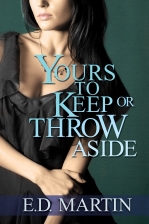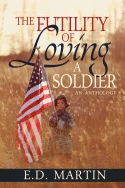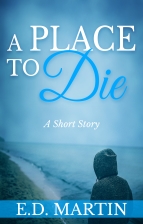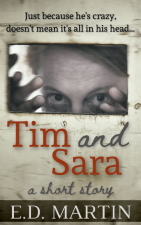Writing is a solitary activity. Yes, we solicit feedback (and I’m fortunate to have a wonderful online writing community for that), and perhaps we have a handful of people off of which to bounce ideas. But for most of us, we sit alone at home, or alone at a library or coffee shop, to hone our craft.
Despite this, there are times when writers crave physical contact with other writers. Supposedly. I’ve attended NaNoWriMo write-ins, where everyone sits in a room and pretends to write while discussing our novels.
I live in a fairly large metropolitan area with a vibrant writing community, at least according to the local writing center’s website. I’ve considered attending their conferences, but the timing has never worked out. So when I saw that they were hosting a day-long writing retreat for a decent price, I decided to bite the bullet and attend. If nothing else, they were offering snacks all day.
I arrived just in time for the opening remarks by a couple local authors. The dozen or so attendees were instructed to channel our muse, find our “sacred spot,” and create. The goal was to have something to share for the group reading at the end of the day. One of the local authors would be at a nearby coffee shop to offer advice and discuss the writing process, if we felt so inclined to sign up for a mini session with her.
I promptly loaded up on orange juice and bite-size cinnamon rolls, found an empty room, and did exactly what I was supposed to – I wrote. In one hour, I’d written another of the Nik Kershaw stories I’m slowly creating.
At that point, it was time for my session with the local author, Robin Throne, who heads up her own publishing company, 918 Studio. We had a lovely chat about the problems with writing and publishing literary fiction, especially short stories, compared to genre fiction or poetry. We also discussed how the writing process worked for each of us, from the idea stage, to finding time to write the damn things, to feedback and publishing. Although I frequently discuss these ideas with others online, it was nice to do it face-to-face.
At that point it was lunch time. I had some nice conversations with other writers, about their processes and ideas, and about what they write and why.
And then it was back to writing for the afternoon. I worked on the ending to a story I’ve been slowly writing and tweaking for almost a year; I think I almost have it figured out but not quite. I made the mistake of finding a new spot to write, right next to the snack table, and so I was a bit distracted and couldn’t focus as well as I did in the morning. Also, I needed to access Dropbox to get that story, and as everyone knows, productivity decreases with access to the internet.
Finally it was sharing time. There were some good things and some not so good things. Most made mention of God, so I decided it was best not to read my story which has some rough language in it. Then there were closing remarks, and we were set free.
All in all, it was a good experience. While it was nice to get some writing done, the most helpful parts of the day were the conversations with other writers, all of whom came at writing from different perspectives and backgrounds (I was probably the youngest participant by about 10 years; the average age was probably about 55).
Now that I know what’s out there, and the benefits of a local writing community, I’ve gotten a membership to the writing center and plan on attending more of their workshops and retreats. Just not all of them; I’m still not a people person.
What’s your experience with local writing groups? What benefits and drawbacks do you find compared to online groups? Do you regularly attend workshops or retreats?





